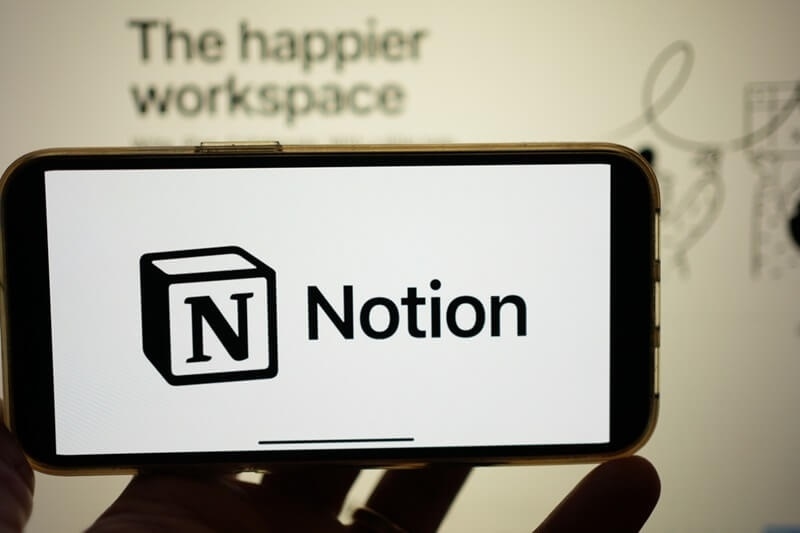
Starting a startup in the U.S. in 2025 is about working in a chaotic, competitive, and technologically-driven ecosystem. With minimal time, funds, and staff, startups will find any edge they can—and the proper startup productivity software could be the edge they need. Not only do these software programs automate tasks, but also equip groups with the power to work together more effectively, automate mundane tasks, and save precious time.
This guide is an in-depth critique of the top startup workflow tools that all U.S. startups should own in 2025. Whether you're managing remote teams, customer data management, or growing operations, the ideal digital toolbox has you organized and on top of the competition.
Starting with the right digital foundation is what separates explosive growth from throwing resources at inefficiency.
Startups usually run on lean resources. There is no room for wasted time, duplicated effort, or poor communication. That's why productivity solutions in startups are needed. From task management applications to automation tools, these solutions save time, improve communication, and enable founders and employees to do high-impact work.
Some of the main advantages include:
Improved collaboration, particularly for remote and hybrid teams

Startups require solutions that are adaptable to their team and scale with their company.
Two of the most popular productivity tools among startups in 2025 are ClickUp and Notion. Both provide task management, documentation, and team coordination on one platform.
These tools are especially useful if you’re looking for the best tools for startup workflow that support both project tracking and documentation without needing multiple apps.
Clear and consistent communication keeps startups moving forward.
Effective communication is key, so tools such as Slack and Loom are cornerstones in the tech ecosystem.
These together form a powerful team collaboration software 2025 bundle that facilitates real-time and asynchronous collaboration, extremely handy for distributed or hybrid teams.
All startups require secure and trusted access to files and collaborative documents.
Google Workspace (formerly G Suite) is still among the top-rated U.S. startup file sharing, collaborative document editing, and email tool picks.
Benefits include:
It is very helpful for start-ups when they have to co-edit documents in a rush without version conflict.
Slowness is caused by manual tasks. Automation is essential.
Zapier and Make (previously Integromat) are advanced automation platforms that automate startup functionality by linking apps and services without writing code.
Both software programs are two of the finest time-saving business apps that help you reduce manual effort and focus on strategic choices.
Time management is a time-saver for small teams.
Calendly and Clockwise are both time-management tools that optimize meetings and team schedules.
These applications are part of the business application segment that simplifies daily scheduling.
Maintenance of leads and relationships is of the utmost significance for seed-stage startups.
CRMs are not limited to large corporations. HubSpot and Pipedrive are specifically designed for small-scale businesses and startups, and they handle contacts, deals, and communications.
These are some of the best U.S. startup tool recommendations for customer interaction management.
Financial organization is not an option, even from the start.
QuickBooks and Brex provide financial management for startups right from day one. They are essential startup productivity tools for financial planning, invoicing, and expenses.
Utilizing these tools prevents financial mistakes and enables founders to devote less time to spreadsheets and more time to growth.
Brainstorming and designing shouldn't slow down development.
Figma and Miro are great graphic tools with collaboration support for founders, designers, and product teams.
They are both popular team collaboration software 2025 tools and have the ability to facilitate rapid iteration, which is a basic requirement for rapid-fire startups.
Remote global hiring and managing HR is made easy and compliant.
For remote hiring teams or managing contractors in startups, Deel and Rippling simplify the complicated HR life.
These application tools help to automate tasks for startups related to people management, time efficiency, and minimizing administrative mistakes.
AI is no longer a nicety in 2025—it's a part of startup productivity.
Utilizing these AI tools is one of the smartest time-saving business app selections available for startups to enhance their productivity at a low cost.
Not all tools are suitable for all startups—select what is suitable for your purposes.
US startups must research the following before implementing new tools:
Investing in the right startup productivity tools in the early stages contributes to building streamlined workflows that don't crumble under the pressure of growth.
In 2025, there aren't sufficient high-impact startup productivity tools—but it ultimately comes down to choosing the ones that work best for your team. From design and finance to automation and collaboration, they can make your startup leaner, faster, and more productive.
Startups employing the best tools for startup workflow will not only save time and money but will also have a more solid basis for growth sustainability. You're whether you require automating work for startups, improving communication or improving scheduling, there are tools that suit your requirement—and some even offer a startup discount or free versions.
This content was created by AI